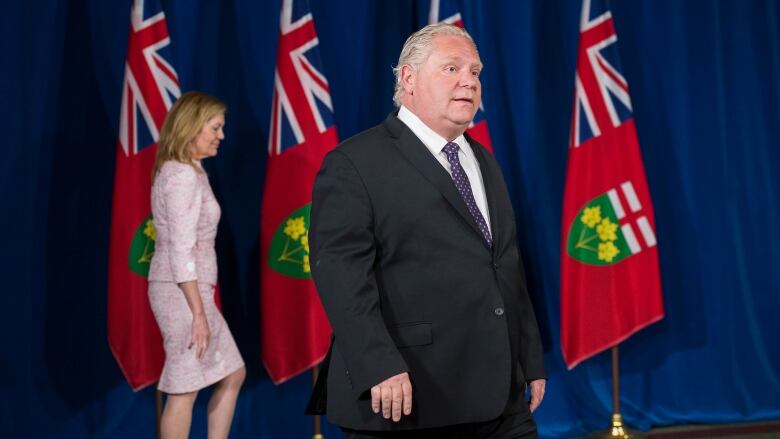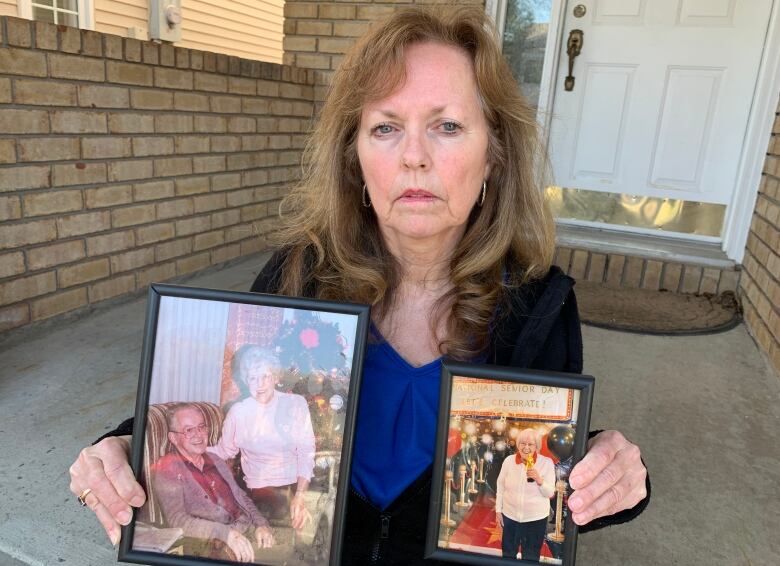Ontario considers 'good faith' immunity from COVID-19 lawsuits
'Civil liability protection is a necessary measure,' says Ontario Long-Term Care Association CEO

Ontario is considering granting some degree of immunity from civil lawsuits related to COVID-19, CBC News has learned.
The move would protect organizations and people including health-care providers from lawsuits if they spread COVID-19 while acting in good faith, according to a provincial government source.
Another source close to the government said a key purpose of the legislation would be to prevent lawsuits against companies whose staff unwittingly infect customers or other workers as the province allows more non-essential businesses to resume operating.
Premier Doug Ford confirmed Tuesday that an immunity provision is on his government's radar.
"We're sitting down as cabinet today, and then over the next few days, and we would consider that," Ford said in response to a question from CBC News.

Asked for more details about what the government is considering, a spokesperson for Attorney General Doug Downey said in an email, "We have nothing to add to the premier's comments."
Ford also said Wednesday that he is "not supporting bad actors.
"I'm holding these people accountable. When we get through this whole process and find out exactly what happened in these homes, there's going to be accountability," he said.
It's unclear what effect if any Ontario's move would have on the handful of lawsuits already filed against long-term care providers over the deaths of seniors from COVID-19.
The group representing the bulk of Ontario's nursing homes says "the unprecedented nature of this virus" warrantsimmunity from legal action exceptwhere an operator acts recklessly or irresponsibly.
"Civil liability protection is a necessary measure to stabilize and renew Ontario's entire long-term care sector," said Donna Duncan, CEO of the Ontario Long-Term Care Association.
"Without it, many insurance companies will cease coverage and long-term care providers would be unable to continue operating," Duncan said in an email to CBC News.
"It in no way absolves responsibility when it comes to issues of gross negligence.There remains zero tolerance for the abuse and neglect of our seniors and any reckless or irresponsible operator should still be held accountable."

British Columbia passed a cabinet order this spring saying any person or corporation "providing an essential service" is not liable for damages resulting from COVID-19 infections.
The list of B.C.essential service providers granted immunity extends from front-line health workersto long-term care facilities and grocery stores. However, immunity does not apply in all circumstances. Someone could still be found liable in cases of gross negligence or for failing to follow public health guidance.
"Under no circumstance should any immunity protection be granted to long-term care homes and their for-profit corporate owners for the conditions they created that led to the virus spreading through their facilities in the first place," said Stephen Birman and Lucy Jackson, lawyers at the Toronto firm Thomson, Rogers.
"Families trusted these long-term care homes to take care of their loved ones and to protect them from infection and neglect," Birman and Jackson said in a statement emailed to CBC News.
The two lawyershave initiated class-action claims on behalf of residents of Altamont Care Community in Scarborough and Woodbridge Vista Care Community in Vaughan.
Other lawsuits launched in Ontario include:
- A $100-million class action launched in May against Revera Retirement Living and Sienna Senior Living. Between them, the two companies own more than 130 nursing homes in Ontario.
- A class-action claimlaunched onbehalf of anyone who lived at any of Chartwell's 27 long-term care homes in the province.
- A class-action claim against six long-term care homes owned, operated or managed by Responsive Group Inc.
None of these lawsuits has been tested in court, or certified by a judge to proceed as a class action.
Official provincial figures show 1,794 residents of long-term care homes have died of COVID-19.
More than 20 U.S. states have already taken steps to limit the liability of health-care providers over the spread of the novel coronavirus, according to researchby a pair of law professors.












_(720p).jpg)


 OFFICIAL HD MUSIC VIDEO.jpg)
.jpg)



























































































